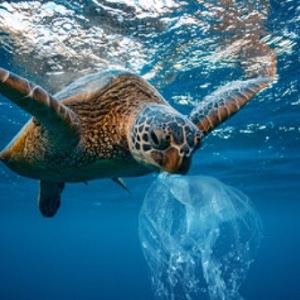Unilever has confirmed that by 2025 it will halve its use of virgin plastic, by reducing its absolute use of plastic packaging by more than 100,000 tons and accelerating its use of recycled plastic. It will help collect and process more plastic packaging than it sells. This commitment makes Unilever the first major global consumer goods company to commit to an absolute plastics reduction across its portfolio.

Taking Radical Action in Plastic Cycle
Unilever is already on track to achieve its existing commitments to ensure all its plastic packaging is reusable, recyclable or compostable by 2025, and to use at least 25% recycled plastic in its packaging, also by 2025.
Alan Jope, Unilever CEO, said: “Plastic has its place, but that place is not in the environment. We can only eliminate plastic waste by acting fast and taking radical action at all points in the plastic cycle.
“Our starting point must be design, reducing the amount of plastic we use, and then making sure that what we do use increasingly comes from recycled sources. We are also committed to ensuring all our plastic packaging is reusable, recyclable or compostable.
Re-Use and Re-Fill Formats
“This demands a fundamental rethink in our approach to our packaging and products. It requires us to introduce new and innovative packaging materials and scale up new business models, like re-use and re-fill formats, at an unprecedented speed and intensity.”
Improving Waste Management Infrastructure
Unilever’s commitment will require the business to help collect and process around 600,000 tons of plastic annually by 2025. This will be delivered through investment and partnerships which improve waste management infrastructure in many of the countries in which Unilever operates.
Jope added: “Our vision is a world in which everyone works together to ensure that plastic stays in the economy and out of the environment. Our plastic is our responsibility and so we are committed to collecting back more than we sell, as part of our drive towards a circular economy. This is a daunting but exciting task which will help drive global demand for recycled plastic.”
Ellen MacArthur, Founder, Ellen MacArthur Foundation, said: "Today’s announcement by Unilever is a significant step in creating a circular economy for plastic. By eliminating unnecessary packaging through innovations such as refill, reuse, and concentrates, while increasing their use of recycled plastic, Unilever is demonstrating how businesses can move away from virgin plastics. We urge others to follow their lead, so collectively we can eliminate the plastic we don’t need, innovate, so what we do need is circulated, and ultimately build an economic system where plastic packaging never becomes waste."
‘Less, Better, No’ Plastic Framework
Closing the Loop on Plastic Waste | Unilever
Since 2017, Unilever has been transforming its approach to plastic packaging through its ‘Less, Better, No’ plastic framework.
Through Less Plastic Unilever has explored new ways of packaging and delivering products - including concentrates, such as its new Cif Eco-refill which eliminates 75% of plastic, and new refill stations for shampoo and laundry detergent rolled out across shops, universities and mobile vending in South East Asia.
Better plastic has led to pioneering innovations such as the new detectable pigment being used by Axe (Lynx) and TRESemmé , which makes black plastic recyclable, as it can now be seen and sorted by recycling plant scanners, and the Lipton ‘festival bottle’ which is made of 100% recycled plastic and is collected using a deposit scheme.
As part of No plastic, Unilever has brought to the market innovations including shampoo bars, refillable toothpaste tablets, cardboard deodorant sticks and bamboo toothbrushes. It has also signed up to the Loop platform, which is exploring new ways of delivering and collecting reusable products from consumers’ homes.